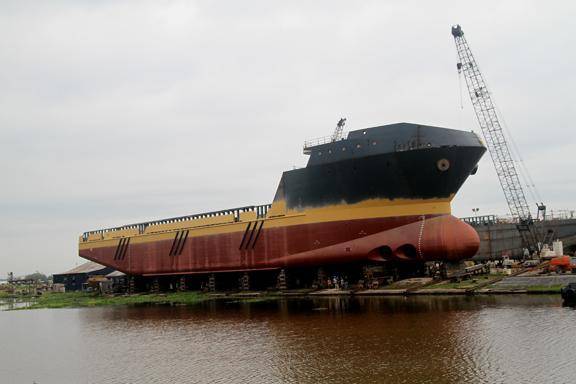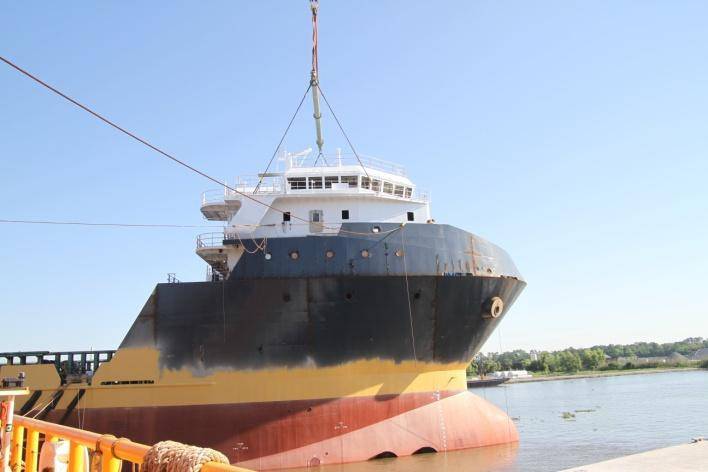Technology Associates, Inc. (TAI) of New Orleans, La., announced that another derivative of a vessel built from TAI’s EnviroMax designs was launched.
Thoma-Sea Marine Constructors, LLC has launched a 6,300 DWT Technology EnviroMax 310 OSV from its Lockport, La. shipyard on April 28. The owner of this vessel is a major oil and gas support vessel company. The EnviroMax 310 vessel is U.S. flagged and will serve worldwide markets. The vessel is being built to the latest ABS rules and has AMS, ACCU, SOLAS, Offshore Support Vessel (SUPPLY-HNLS, FFV-1) HDC HLC (2.7, LM TANKS), MLC-ACCOM, UWILD, ENVIRO, GREEN PASSPORT notations and certified for USCG Subchapter I & L . This is a continuation of the successful Technology EnviroMax series. Technology EnviroMax OSVs have also been built for Gulfmark Offshore, who operates the Regulus and Polaris (EnviroMax 275), Gulf Offshore Logistics who had Taylor James (EnviroMax 300) built by Thoma-Sea, and the Fugro Americas, a version built for Fugro as a Multipurpose Offshore Research Vessel also recently delivered by Thoma-Sea. Harvey Gulf International Marine, LLC is now operating the Harvey Condor and Harvey Hawk, both which are EnviroMax TM 300 OSVs.
Captain Paul D. Hawkins who operates one of the Technology EnviroMax 275s stated, “We can standby on one generator, and travel on one of the four generators saving them (our client) a lot on fuel. Overall the vessel is doing an outstanding job, and the Captain and crew are pleased."
All of the above designs are technologically advanced, fuel efficient, resistance space and deadweight optimized, dynamically positioned, high speed Diesel Electric vessels, and are derivatives of TAI’s EnviroMax series of designs, which have been licensed by TAI to Thoma-Sea. The EnviroMax designs offer maximum cargo carriage and minimized fuel consumption capabilities. One of the fundamentals of the EnviroMax series design concept is that when the market gets competitive, vessels which can offer more value to the oil operators, such as higher speeds, higher payloads and lower fuel consumption, for the same price, will be preferred for charter. The other fundamental is that they are designed to be flexible and can be adapted for use in alternate markets.

















